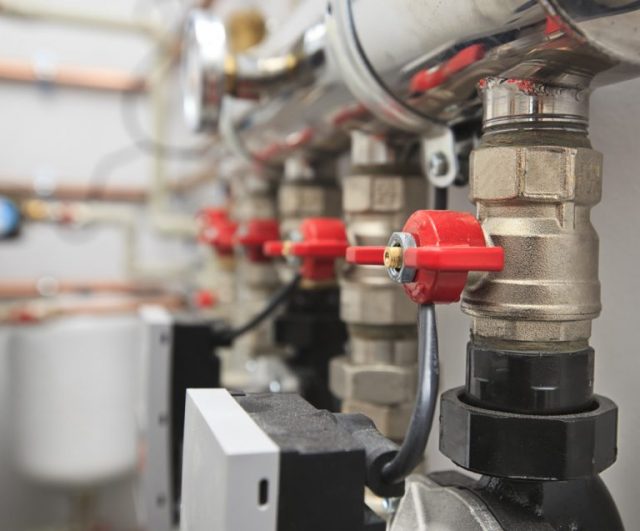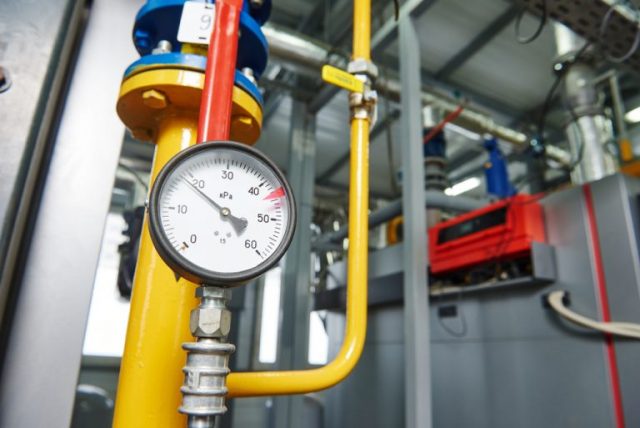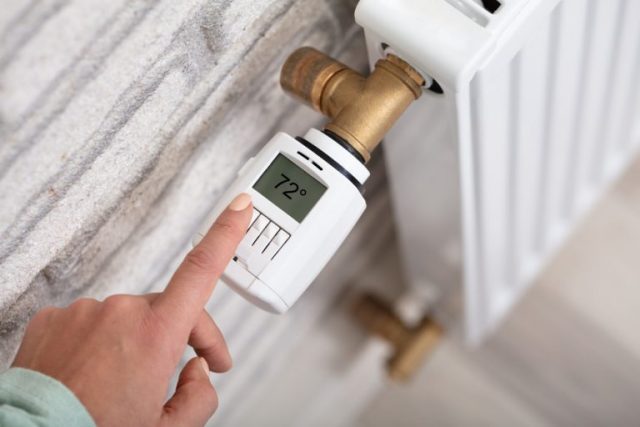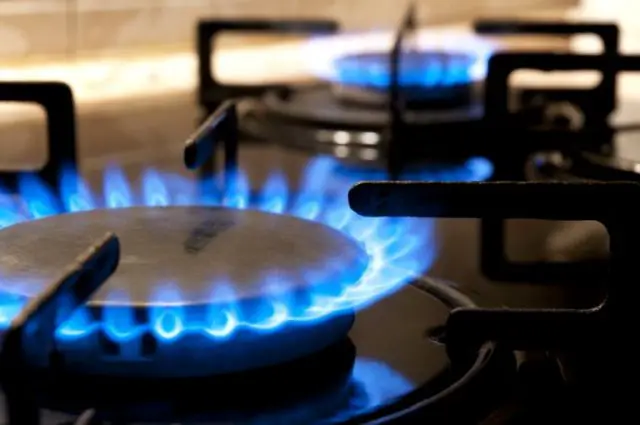You have many options to heat a house to make sure that the occupants feel comfortable during the cold seasons. Two of the most common options are gas and electric heating options. You need to consider various factors when choosing the best one, and one of the most important ones is the cost, although it is not the only one.
Electric heaters are easier and cheaper to install than gas heaters. However, when it comes to operational costs, the latter is cheaper. When you compare gas heat against electric heat, you need to consider the facts, such as the upfront costs, operating costs, environmental impact, air quality, supply reliability, safety, and maintenance.
Let’s look at and compare the various factors that could help you decide between the 2 heating sources to use in heating your homes or businesses.
Costs of Gas Heat Vs. Electric Heat


Equipment Cost
The average price for a new gas heater ranges from $1,200 to $2,400, depending on the manufacturer. Meanwhile, the same link also shows that a new electric heater will cost you between $700 and $2,000. As you can see, the equipment cost for electric heating is cheaper than gas heaters.
Installation Cost
The average installation cost for a natural gas furnace is $5,500 while an electric furnace will cost about $3,000. A gas heater needs a chimney, air ducts, and vents throughout the house. The complexity of the installation process will require the help of a professional.
On the other hand, electric heating units come with simpler designs. Although they need to be installed as well, the process involved is less complicated and can be done as a DIY project. As you can see, an electric heating system is cheaper to install than a gas heating unit. But in terms of operational costs throughout the unit’s lifespan, a gas heating unit is more affordable than electric heating.
Operating Costs
Electric heating may have lower upfront costs but gas heating has fewer operating costs. There are four factors that affect the operational costs of any heating system.
- Fuel type
- Fuel’s cost per unit
- Amount of heat produced per unit of fuel
- The efficiency of the chosen heating system
The British Thermal Units (BTUs) are used to measure the amount of heat. The cost per 100,000 BTU for a gas heater stands at $1.10 while an electric heater costs $2.93. The estimated annual operating cost for a standard efficiency gas heater is $574 while an all-electric standard electric furnace has an estimated annual operating cost of $1,965. The same link shows that a high-efficiency natural gas furnace has an estimated annual operating cost of $499 while a high-efficiency electric heat pump costs $787.
Energy Efficiency
If you compare gas and electric heaters, the latter is more efficient because it has an annual fuel fertilization efficiency (AFUE) that can reach as high as 100%. Meanwhile, gas furnaces have an AFUE that ranges between 55% and 97%.
Energy efficiency refers to the amount of energy that is converted into heat and not the rate at which the system heats your home. Electric heaters convert almost all of the energy into heat in contrast to gas heaters. However, the latter can heat your entire home faster than electric heaters even if it has lower energy efficiency. That’s because a gas furnace produces heat that is hotter than what electric coils can produce. Because of this, a gas furnace is an excellent heating option if you’re living in an area with a colder climate while an electric furnace works well for those who live in a warmer climate and have less demand for heating.
Air Quality
If you have a gas furnace, your home’s air quality may be contaminated by carbon monoxide. This gas, which is odorless and colorless, is produced as a result of combustion. Without proper and adequate ventilation, your home can be filled with carbon monoxide, which could cause serious health problems. It’s also important to have a high-quality air filter and carbon monoxide detector.
Noise
An electric heating system is quieter compared to a gas heating system. Electric heating units come with simple designs while gas heating units have burners and vents. Although, gas heating units only make a lot of noise during startup, when the burner ignites.
Maintenance And Safety
An electric heating system requires minimal maintenance and less professional assistance because there’s no burner to inspect or clean. Meanwhile, a gas furnace requires regular maintenance, which means you need to hire an expert to carry out the yearly inspection and cleaning. A gas heating system must be inspected for condensation because it could lead to corrosion over time. It must also be well ventilated and properly maintained to make sure that is working correctly and safely.
Lifespan
Gas heating systems last between 10 years and 20 years. It’s shorter than the lifespan of an electric heating system, which is from 20 to 30 years.
Why do gas heaters have a shorter lifespan? Gas furnaces require regular maintenance because their burners produce small particles that accumulate in the furnace. Aside from that, several parts of the heat exchanger are at risk of corrosion. Electrical heating systems don’t have these issues and that’s why they have a longer lifespan.
Suitability
In terms of suitability, a gas heating unit is perfect if you have a large house since more heat is produced and dispersed faster than electric heating. Meanwhile, if you live in a smaller home with fewer members and your space needs to be heated at lower temperature settings then an electric heating system is a good option.
Environmental Impact
Natural gas emits lower greenhouse gas and sulfur dioxide. It has no mercury emission and lower nitrogen oxide emissions. Aside from that, it burns more cleanly compared to other fossil fuels. Meanwhile, electric heating systems have higher greenhouse gas emissions, mercury emissions, nitrogen oxide, and sulfur dioxide.
What are the Pros and Cons of Gas Heating?


Pros of Gas Heating:
Gas heating systems are known for their consistency in providing warmth to homes, reliability, and energy efficiency. It’s one of the most popular heating options in the United States because of the following reasons.
- Affordability – Gas heating is less expensive than electric heating, in terms of operational costs. The actual savings you’ll enjoy will depend on the fuel cost in your area and the efficiency of your gas heating system.
- Warmer Air – A gas heating system can produce air that’s 25 degrees warmer than the air produced by an electric heating system.
- Reliability – Natural gas is a reliable source of heating your home. Their supply lines are installed underground, which means the natural elements that may affect electrical sources can’t reach them. Even if there’s an electrical outage, having a gas heating system can still provide heat to your home. Since natural gas is a reliable heating fuel, you can rest easy knowing that you and your family are safe or your business can remain operational in case of severe weather conditions.
- Eco-friendly – Gas heating systems are eco-friendly since they release a lower amount of greenhouse gases and less carbon dioxide compared to electricity that uses coal.
- Versatility – You can pair a gas heating system with a cooling system such as a heat pump or air conditioner.
- Heat Distribution – A gas heating system can heat a house faster than an electric heating system.
Cons of Gas Heating:
- Yearly maintenance – A gas heating system needs to be maintained every year to make sure that it’s running correctly and safe to use at home or in your business establishment.
- Service Life – It has a shorter lifespan, 20 years maximum, than an electric heating system, which can last for up to 30 years.
- Gas Line – You need a natural gas line for your home if you want to use this type of heating option.
What are the Pros and Cons of Electric Heating?


Pros of Electric Heating:
- Upfront Cost – An electric heating system is more affordable to install, in terms of its upfront expenses.
- Installation – Since it needs an electrical supply to heat your home, its installation is relatively stress-free and easy.
- Maintenance – It doesn’t require yearly servicing, which means less maintenance cost on the part of the homeowner.
Cons of Electric Heating:
- Overall Cost – Its overall cost is more expensive than a gas electrical system. Its operational costs are higher especially if you live in an area where you need to use your heating system more often.
- Heat Distribution – Unlike gas-powered heaters, an electric system takes longer to warm up a home.
What are Some Cost-Effective Ways to Heat Your Home?

- Double glaze your window. It will help insulate your home by reducing the passage of cold or hot air between the internal and external parts of your home.
- Insulate your home to keep valuable heat inside for a longer period.
- Make sure no heat can escape through cracks under the windows or doors. If your windows or doors are old, it’s best to replace them with brand new and more insulated ones.
- Install heavy-duty thermal curtains to retain the heat produced by your heating system much longer.
- Set the timer of the heating system to automatically turn on or off so that you can optimize the use and the cost of your heating unit.
- Compare suppliers to find the cheapest yet efficient heating devices.
Conclusion
Both gas and electric heating are beneficial and necessary in places where it can get really cold during the winter season. If you want to know which one is the best option for your home or business, you need to consider various factors including the cost. This means you have to evaluate the installation and operational costs of each option. You can calculate and compare the cost by using an online electric heat vs gas heat cost calculator. If you’re looking for a heating system that is more affordable to have in the long run, then a gas heating system is your best bet. If you’re in the market for a heating system that has a long lifespan and requires less maintenance, then you should go for an electric heating system. The answer to the question of which one is the best will depend on your needs, budget, and location.

